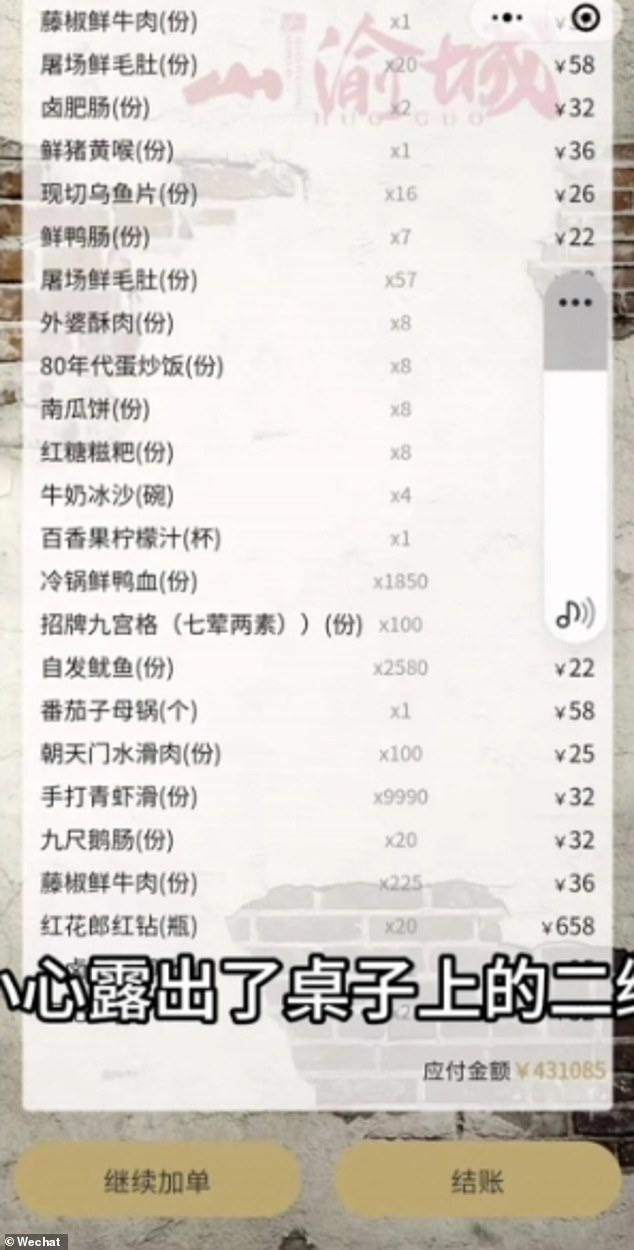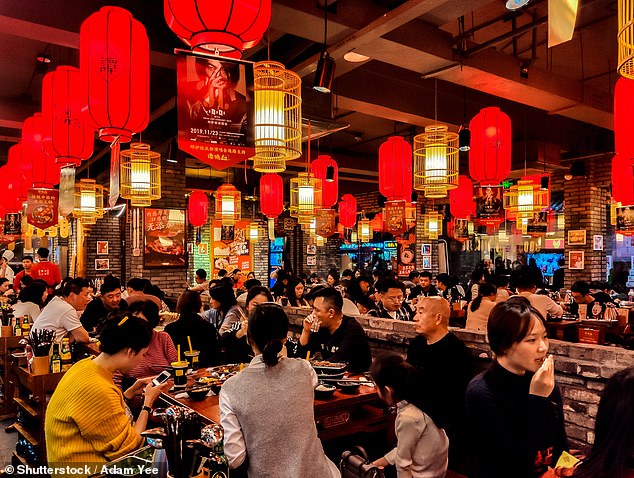Woman is hit with £50,000 restaurant bill after posting a photo of her meal on social media
- Table's QR code was visible in no time – and pranksters took advantage of it
It has become the norm for restaurant guests to quickly snap a photo of their meal and post it to social media before eating.
But for one woman in China, her decision to post a photo of her dinner on the Chinese app WeChat proved disastrous – and her lunch date with a friend quickly turned into a nightmare.
When the time came to pay her bill at a hot pot restaurant in Kunming, southwest China, the woman was shocked to discover she had been given a bill for £50,000 (430,000 Chinese yuan).
The woman, identified only by her surname Wang, realized with horror that in the photos she posted online, she had accidentally added the QR code taped to her table. South Morning China Post.
Within minutes of posting the photos to WeChat – and while she was catching up with her friend – some of her contacts on the app quickly began scanning the code and ordering an inordinate amount of food for her table.
The trolls ordered a whopping 1,850 portions of fresh duck blood, 2,580 portions of squid and 9,990 portions of shrimp paste, according to a screenshot of the bill.

When the time came to pay her bill at a hot pot restaurant in Kunming, southwest China, the woman was shocked to discover that she had been given a bill for £50,000 (431,000 Chinese yuan).

For one woman in China, her decision to post a photo of her dinner on the Chinese app WeChat proved disastrous – and her lunch date with a friend quickly turned into a nightmare (file image)
The restaurant staff, who saw the huge order, apparently decided to confirm the bill with Ms. Wang before sending out all the food — and then she realized her mistake.
She quickly deleted her post, but the restaurant was still flooded with orders during the incident last month.
Fortunately for a nervous Ms. Wang, the restaurant did not let her pay the extortionate bill and moved her to a new table, ignoring all new orders placed via the QR code.
Staff said they had tried in vain to track down the people who ordered the food.
Ms Wang said it was a learning experience and called for greater awareness of how QR codes can be used maliciously.
And the restaurants have now adjusted their ordering system so that customers can only place an order if they are within a certain distance from the building.
Lin Xiaoming, a lawyer from Sichuan Yishang law firm, told Chinese media outlet Fengmian News that the false orders were not Ms. Wang's original intention, meaning they were invalid.
